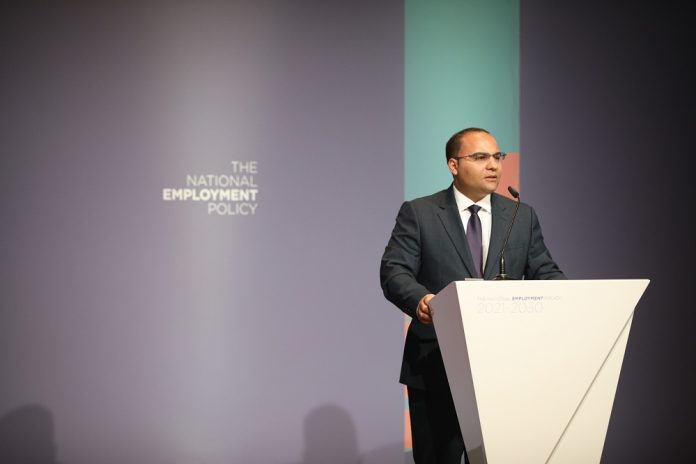Minister for Finance and Employment Clyde Caruana introduced the new National Employment Policy for 2021-2030, marking out the government’s holistic vision for employment in Malta for the next nine years. The policy is aimed towards a better quality of life, higher standards of living facilitated by higher incomes, and improved well-being, whilst equipping workers with the needed tools and skills for the future. The policy is fundamentally based on the premise that work gives not just dignity, but personal enrichment and life satisfaction.
“Malta is at a turning point. The policy document professes change in both the way we look at work and productivity in Malta. We have already achieved a lot over the past few years in relation to employment. As local figures verge close to full employment, it is time we raise the bar and raise the value of what we produce. It is no easy task. Innovation demands that we continue to upskill and change our businesses and workforce. Failure to do so has consequences. Just as we have beaten difficult odds in the past, we must continue to do so today and tomorrow.”
In drawing the new National Employment Policy, a foundational step was to understand the economic fundamentals of the island and their development over the past few years. A broad consultation exercise was held with a number of key stakeholders. Overall, 30 focus groups were held across various industry sectors with 268 business leaders. To gauge the perceptions of individual workers a representative study of 4000 individuals was also conducted by the National Statistics Office.
Whilst highlighting the economic realities of Malta’s economy, the document also forecasts the key drivers of change that are expected to drive the global economy and impact the world of work, as well as the local perceptions of the Maltese workforce towards their own world of work based on income, well-being, career and skills. This makes the Employment Policy tailored around Malta’s particular circumstances, potential, challenges, and opportunities.
From the analysis, it is apparent that the skill gap being experienced in Malta is set to continue and will be critical for Malta’s attractiveness to develop its pool of skilled talent across the board. Concurrently, efforts to strike a balance between having a well-trained local resource and a flexible system to deal with labour shortages and manage migrant workers need to continue.
Cognizant of the challenges and opportunities Malta’s labour market is facing, the government is presenting 40 recommendations based on three guiding principles, these being:
- Equipping individuals in acquiring the needed and industry-demanded skillsets for tomorrow’s world and empowering all workers to actively participate in Malta’s labour market and to ensure that they can achieve a higher standard of living through employment.
- Enabling employers and businesses to continue investing in business growth and employment.
- Designing institutions of works that are responsive and that level the playing field for all workers to work with dignity.
The government believes this human-centric approach will be the future of work and opens the potential for real social mobility for Maltese families to enjoy better quality employment and a higher standard of living. Minister Caruana stated how this vision will be reinforced and bolstered with measures in the following week’s Budget for 2022.
For the full list of recommendations and access to the research findings, The National Employment Policy is available for download and perusal online at www.finanzi.gov.mt/nep.










